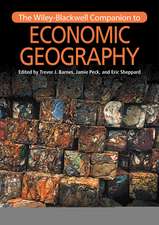Proxy Warriors: The Rise and Fall of State-Sponsored Militias
Autor Ariel Ahramen Limba Engleză Paperback – 25 ian 2011
In this book, Ariel Ahram offers a new perspective on a growing threat to international and human security—the reliance of 'weak states' on quasi-official militias, paramilitaries, and warlords.
Tracing the history of several "high profile" paramilitary organizations, including Indonesia's various militia factions, Iraq's tribal "awakening," and Iran's Revolutionary Guard and Basij corps, the book shows why and how states co-opt these groups, turning former rebels into state-sponsored militias. Building on an historical and comparative empirical approach that emphasizes decolonization, revolution, and international threat, the author offers a new set of policy prescriptions for addressing this escalating international crisis—with particular attention to strategies for mitigating the impact of this devolution of violence on the internal and international stability of states.
Tracing the history of several "high profile" paramilitary organizations, including Indonesia's various militia factions, Iraq's tribal "awakening," and Iran's Revolutionary Guard and Basij corps, the book shows why and how states co-opt these groups, turning former rebels into state-sponsored militias. Building on an historical and comparative empirical approach that emphasizes decolonization, revolution, and international threat, the author offers a new set of policy prescriptions for addressing this escalating international crisis—with particular attention to strategies for mitigating the impact of this devolution of violence on the internal and international stability of states.
| Toate formatele și edițiile | Preț | Express |
|---|---|---|
| Paperback (1) | 156.49 lei 3-5 săpt. | |
| Stanford University Press – 25 ian 2011 | 156.49 lei 3-5 săpt. | |
| Hardback (1) | 587.65 lei 6-8 săpt. | |
| Stanford University Press – 25 ian 2011 | 587.65 lei 6-8 săpt. |
Preț: 156.49 lei
Nou
Puncte Express: 235
Preț estimativ în valută:
29.95€ • 30.94$ • 24.91£
29.95€ • 30.94$ • 24.91£
Carte disponibilă
Livrare economică 26 februarie-12 martie
Preluare comenzi: 021 569.72.76
Specificații
ISBN-13: 9780804773591
ISBN-10: 0804773599
Pagini: 208
Dimensiuni: 152 x 229 x 18 mm
Greutate: 0.4 kg
Ediția:New.
Editura: Stanford University Press
Colecția Stanford Security Studies
ISBN-10: 0804773599
Pagini: 208
Dimensiuni: 152 x 229 x 18 mm
Greutate: 0.4 kg
Ediția:New.
Editura: Stanford University Press
Colecția Stanford Security Studies
Recenzii
"Proxy Warriors by Ariel I. Ahram is a timely contribution to the literature of security devolution. Ahram has rich experiences for teaching and researching in global security and politics of the developing world . . . Proxy Warriors is well written and easy to read. It is a gap filler in the literature of state-sponsored militias and serves as a base for future studies in this field. In addition, Ahram should be commended for the way his work enhances and refines the general reader's understanding of state-sponsored militias."—Kai Chen, Politics & Policy
"Ahram builds then tests, using detailed case studies, an alternative account that not only upends current explanations but also aims to account for variation in the use of state-sponsored armed groups across space and time. . . The case studies are uniformly well written, and the evidence offered is compellingly presented. The book's thoughtful policy recommendations make it potentially useful for both scholars and practitioners. Highly recommended."—K. M. Greenhill, CHOICE
"Each of [the] case studies is thorough and does an excellent job of illustrating the ways the states used militias as security forces . . . The book would be a useful read for anyone preparing to deploy to a combat theater."—Captain Leonard M. Joyner II, Military Review
"Proxy Warriors makes a significant contribution to our understanding of the devolution of state control over violence to non-state actors within the state. It demonstrates that, contrary to received wisdom, decentralization need not undermine a state's internal security or even the ability of a state to guard against external threats. Thus, late-developing states may well have workable alternative institutional arrangement to those of the developed world."—Peter J. Dombrowski, Professor and Chair, Strategic Research Department, U.S. Naval War College
"Proxy Warriors offers a timely, insightful, and often contrarian look at how leaders in developing states use militias, gangs, and other substate actors. Ahram offers important findings that explain states' different approaches and provides fresh policy prescriptions for the international community to manage, or at times live with, this difficult problem."—Daniel Byman, Professor, Security Studies Program, Georgetown University
"Ahram builds and tests a theory to account for variations in the use of state-sponsored militias versus conventional armed forces among late-developing states, and offers a practical set of recommendations that acknowledge the salience of Proxy Warriors in the global security arena. An important read for both scholars and policy-makers."—Max Manwaring, Research Professor of Military Strategy, U.S. Army War College
"Ahram builds and tests a theory to account for variations in the use of state-sponsored militias versus conventional armed forces among late-developing states, and offers a practical set of recommendations that acknowledge the salience of Proxy Warriors in the global security arena. An important read for both scholars and policy-makers."—Max Manwaring, Research Professor of Military Strategy, U.S. Army War College
Notă biografică
Ariel I. Ahram is an Assistant Professor in the School of International and Area Studies and the Department of Political Science at the University of Oklahoma.
Descriere
The book explains why some Third World states have centralized, conventional military forces while others rely on militias, paramilitaries, and other non-state actors using detailed case studies of Indonesia, Iraq, and Iran and offers policy recommendations for dealing with weak states based on this analysis.











